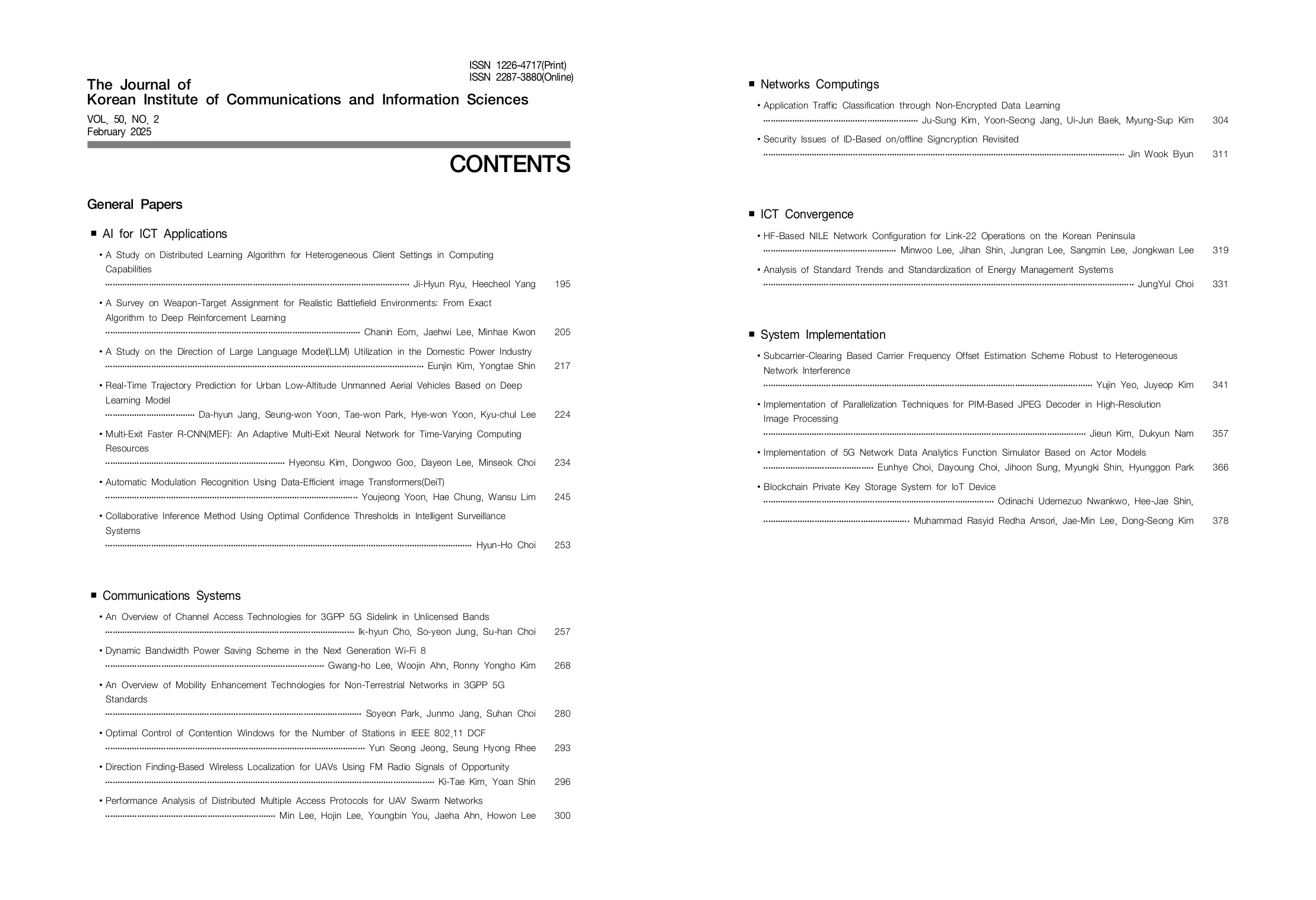Best Papers A Study on Distributed Learning Algorithm for Heterogeneous Client Settings in Computing Capabilities
Vol. 50, No. 2, pp. 195-204, Feb. 2025
 10.7840/kics.2025.50.2.195
10.7840/kics.2025.50.2.195
PDF Full-Text
Abstract
Statistics
Cumulative Counts from November, 2022
Multiple requests among the same browser session are counted as one view. If you mouse over a chart, the values of data points will be shown.
Multiple requests among the same browser session are counted as one view. If you mouse over a chart, the values of data points will be shown.
|
|
Cite this article
[IEEE Style]
J. Ryu and H. Yang, "A Study on Distributed Learning Algorithm for Heterogeneous Client Settings in Computing Capabilities," The Journal of Korean Institute of Communications and Information Sciences, vol. 50, no. 2, pp. 195-204, 2025. DOI: 10.7840/kics.2025.50.2.195.
[ACM Style]
Ji-Hyun Ryu and Heecheol Yang. 2025. A Study on Distributed Learning Algorithm for Heterogeneous Client Settings in Computing Capabilities. The Journal of Korean Institute of Communications and Information Sciences, 50, 2, (2025), 195-204. DOI: 10.7840/kics.2025.50.2.195.
[KICS Style]
Ji-Hyun Ryu and Heecheol Yang, "A Study on Distributed Learning Algorithm for Heterogeneous Client Settings in Computing Capabilities," The Journal of Korean Institute of Communications and Information Sciences, vol. 50, no. 2, pp. 195-204, 2. 2025. (https://doi.org/10.7840/kics.2025.50.2.195)
Vol. 50, No. 2 Index



